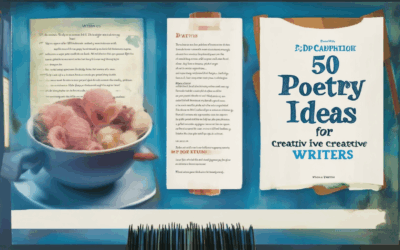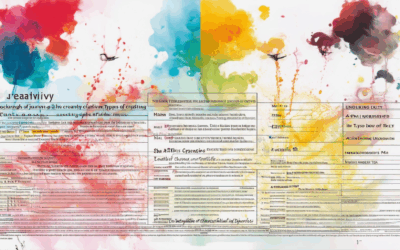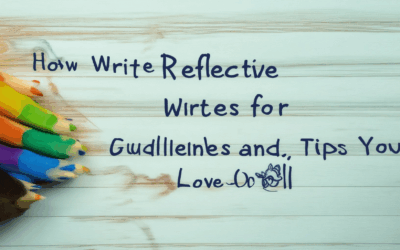Engaging in creative writing is a transformative experience that allows individuals to unlock their storytelling potential, yet many beginners often face challenges in getting started. Whether you’re aiming to craft compelling dialogue, develop rich characters, or structure a novel, mastering the fundamentals of creative writing can significantly enhance your craft. This guide delves into essential tips and strategies, providing a roadmap for those eager to overcome obstacles and refine their skills. From establishing routines to conducting thorough research and revising drafts, we explore techniques that will help you navigate the complexities of creative writing. Additionally, discover how leveraging the right tools and joining supportive communities can accelerate your growth. By embracing these practices, you’ll not only improve your writing but also gain confidence in your ability to tell meaningful stories. Let’s dive into the key principles and actionable advice designed to empower aspiring writers.
Key Takeaways
- Start small by beginning with short pieces or journaling to build confidence and consistency in creative writing.
- Experiment with various genres, such as poetry, short stories, essays, and scripts, to discover your personal strengths.
- Utilize writing prompts to spark creativity and generate new ideas.
- Enhance your writing by incorporating sensory details to create vivid descriptions.
- Practice freewriting to overcome writer’s block and access your subconscious thoughts.
- Join writing communities or forums to seek feedback and gain motivation from others.
- Track your progress and set achievable goals to stay motivated and celebrate milestones.
- Embrace the iterative nature of writing, viewing mistakes as opportunities for growth.
- Connect with like-minded writers by joining writing communities, such as Silken Drum, to foster support and inspiration.

What are the 5 R’s of creative writing?
The 5 R’s of creative writing are a framework developed by author and teacher Lawrence Gutkind to guide aspiring writers in crafting compelling narratives. These principles emphasize the importance of authenticity, exploration, and structure in creating meaningful stories. Here’s a breakdown of each:
- Real Life : Creative writing often draws from personal experiences and observations. Writers immerse themselves in real-life situations, whether through journaling, conducting interviews, or participating in communities, to gather authentic material.
- Reflection : After experiencing something, writers reflect on their emotions, thoughts, and reactions. This introspection helps transform raw experiences into coherent and resonant stories.
- Research : Thorough research is essential for accuracy and depth. Writers may interview subjects, review historical documents, or explore cultural contexts to ensure their work is informed and credible.
- Reading : A strong foundation in literature is crucial. Writers read widely to understand different writing styles, genres, and perspectives, which inspires their own creativity and helps them develop unique voices.
- Writing : Finally, writers apply their knowledge and skills to craft their ideas into compelling narratives. This involves experimenting with language, structure, and tone to convey their message effectively.
By mastering these five elements, writers can create works that are deeply personal, thought-provoking, and universally relatable. At Silken Drum, we encourage writers to embrace these principles and share their unique stories with our community. Explore our resources and forums to inspire your next creative project today!
How Do Beginners Learn Creative Writing?
- Start with Reading and Imitation: Begin by immersing yourself in the works of established writers. Read widely across different genres to understand style, structure, and tone. Mimic their techniques to develop your own unique voice.
- Establish a Daily Writing Routine: Set aside time each day to write, even if it’s just a short piece. Consistency helps build momentum and improves your skills over time.
- Seek Inspiration from the World Around You: Pay attention to your surroundings and experiences. Keep a journal to document thoughts, ideas, and observations that spark creativity.
- Learn the Importance of Revising: Don’t be afraid to edit and refine your work. Revision is a crucial part of the writing process, helping you clarify your message and improve your craft.
- Join Writing Communities: Engage with other aspiring writers through workshops, online forums, or local writing groups. Sharing your work and getting feedback can accelerate your growth.
- Set Realistic Goals: Define short-term and long-term objectives for your writing. Whether it’s completing a story or mastering a specific genre, having clear goals keeps you motivated.
- Experiment with Different Genres and Styles: Explore various forms of writing, such as poetry, prose, scripts, or journalism. This broadens your skills and opens up more opportunities for creative expression.
- Understand and Embrace Feedback: Welcome constructive criticism from peers or mentors. Feedback provides valuable insights and helps you identify areas for improvement.
- Consider Teaching Others: Sharing your knowledge by teaching others can reinforce your understanding and keep your own motivation high. Lead writing classes or mentor younger writers.

What are the 5 C’s of creative writing?
The 5 C’s of creative writing are:
- Content – The foundation of creative writing is having a compelling story, character, or idea to convey. Whether it’s a poem, novel, or script, the content must engage and resonate with the audience.
- Craft – Mastery of techniques such as dialogue, pacing, and description is essential. A well-crafted piece flows smoothly and maintains the reader’s interest.
- Creativity – The ability to think outside the box and bring unique ideas to life. Creativity is what sets writing apart and makes it memorable.
- Clarity – A clear and concise message ensures the reader understands the intended meaning and emotional impact of the work.
- Coherence – The pieces must connect logically, whether through a sequence of events, character development, or thematic unity.
Silken Drum is a creative writing platform that supports writers at every stage of their journey. We offer resources, communities, and inspiration to help you refine your craft and connect with fellow creators. Explore our site to discover workshops, tools, and opportunities to grow as a writer: Visit Silken Drum .

Can I Teach Myself Creative Writing?
Yes, you can teach yourself creative writing with dedication, practice, and the right resources. Here’s how you can approach it effectively:
- Understand the Basics : Start by understanding the fundamentals of creative writing, such as storytelling, character development, and descriptive writing. Consider enrolling in online courses or reading guides to gain foundational knowledge.
- Daily Practice : Consistency is key. Dedicate time each day to write, even if it’s just a short session. Journaling can be a great start, allowing you to document your thoughts and observations.
- Edit and Revise : Learn to edit your own work by reading through drafts carefully. Highlight mistakes and revise accordingly. Over time, you’ll develop a stronger sense of rhythm and flow in your writing.
- Nurture Your Imagination : Experiment with techniques like freewriting to overcome writer’s block. Write continuously for a set period without worrying about grammar or spelling. Reading works by established authors can also inspire your own creativity.
- Seek Feedback : Join writing communities or forums to share your work and receive constructive criticism. Platforms like Silken Drum offer spaces for connection and growth with fellow writers.
- Set Goals : Establish achievable objectives, such as completing a short story each week or reaching a specific word count daily. Track your progress to stay motivated and celebrate milestones.
- Focus on Technique : Improve your grammar and style by using tools like Grammarly or taking grammar classes. Effective communication is as important as creativity in writing.
By following these steps, you can enhance your creative writing skills independently. Resources like Silken Drum can provide support and community, aiding your journey toward becoming a confident and skilled writer.
How to Practice Creative Writing
Practicing creative writing can be a rewarding journey that enhances your skills and imagination. Here are some effective strategies to help you get started:
- Set a Daily Routine : Dedicate a specific time each day for writing. Even 15–30 minutes can make a significant difference.
- Explore Different Genres : Try your hand at various forms of writing, such as poetry, short stories, essays, or scripts.
- Journaling : Keep a journal to document your daily thoughts, feelings, and experiences. This helps in developing your observational skills and narrative voice.
- Experiment with Prompts : Use writing prompts to spark creativity. Consider prompts like “Write about a place you’ve always wanted to visit” or “Describe your ideal day.”
- Incorporate Sensory Details : Enhance your writing by including vivid descriptions of sights, sounds, smells, textures, and tastes.
- Freewriting : Write continuously for a set period without worrying about grammar or spelling. This exercise helps overcome writer’s block and taps into your subconscious thoughts.
- Read Widely : Read books, articles, and poems in the genres you’re interested in. Analyze the structure, dialogue, and pacing of your favorite authors to learn their techniques.
- Seek Feedback : Share your work with trusted friends, family, or writing groups. Constructive criticism can provide valuable insights and help you grow as a writer.
- Participate in Writing Challenges : Join online communities or challenges that encourage regular writing, such as NaNoWriMo (National Novel Writing Month).
- Take Classes or Workshops : Enroll in creative writing courses to gain knowledge, techniques, and motivation from experienced writers and instructors.
- Track Progress and Set Goals : Keep track of your writing milestones. Set achievable goals, such as completing a poem per week or working on a longer project.
- Evaluate and Adjust : Review your work regularly. Identify areas for improvement and adjust your approach accordingly.
- Embrace the Process : Understand that writing is a iterative process. Embrace mistakes as part of your growth and keep pushing forward.
By consistently applying these strategies, you can develop your creative writing skills and find your unique voice. Remember, the key is to enjoy the journey and let your imagination guide you.

The Ideal Age for Creative Writing
There is no one-size-fits-all answer to determining the ideal age for someone to start learning creative writing, as it varies greatly depending on individual interests, developmental stages, and personal goals. However, certain age groups tend to benefit uniquely from creative writing.
Early Years (Ages 6-12)
Children can begin creative writing as early as age 6. At this stage, simple stories, poems, and journals are perfect for introducing them to the basics of writing. Play and storytelling are natural extensions of their imaginations, making creative writing a fun and intuitive process. Parents and educators can encourage this by providing age-appropriate materials and fostering a love for literature through picture books and interactive activities.
Teenagers (Ages 13-18)
Teenagers often experience a natural inclination towards creative expression during their formative years. This stage can be particularly fruitful for developing poetic skills, journaling, and exploring narrative structures. Many teens find solace in creative writing as a means of processing emotions and self-discovery, making it a valuable tool for personal growth and emotional release.
Adults ( Ages 18 and Beyond )
Adults bring unique perspectives and life experiences to creative writing, often resulting in rich, nuanced works such as novels, poetry collections, or memoirs. Creative writing workshops and online platforms like Silken Drum offer structured environments for adults to refine their skills, connect with like-minded writers, and explore diverse genres.
Benefits of Creative Writing
- Emotional Release: Writing allows individuals to process complex emotions and thoughts, serving as a therapeutic outlet.
- Cognitive Growth: Engaging in creative writing enhances problem-solving abilities, memory retention, and critical thinking skills.
- Social Connections: Joining writing communities fosters relationships and provides support, as seen on platforms like Silken Drum.
Tips for Success
- Start Small: Begin with short pieces or journals to build confidence and consistency.
- Explore Genres: Experiment with various forms of writing to discover personal preferences and strengths.
- Seek Feedback: Join writing groups or forums to receive constructive criticism and gain motivation.
Conclusion
There is no ideal age for creative writing—it’s a journey that can be enjoyed by individuals of all ages. Whether you’re a child exploring stories or an adult crafting narratives, the key is to embrace the process, stay curious, and let your imagination guide you. Discover the transformative power of creative writing today with resources available at Silken Drum .




0 Comments